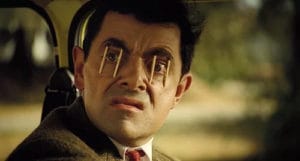Yes, coffee has a lot of perks (pun intended).
A cup of coffee in the morning can make you feel energized and take on the rest of the day. By mid-day, coffee can also provide a reliable pick-me-up to trudge on, finish meetings and submit deadlines. At night, a good brew can give you a boost of energy to keep you up until morning.
But what is it in coffee that wakes us up?
While we all know that caffeine is the primary active ingredient in coffee, not everyone knows just how exactly it works on your brain.
How Does Caffeine Keep You Awake?
Coffee wakes you up and keeps you alert not only in the morning but any time throughout the day. This is because caffeine hijacks your brain, binding to adenosine receptors which are responsible for making you feel sleepy and tired.
Adenosine is a neurochemical that is produced by your body throughout the day, resulting to your feelings of sleepiness and exhaustion. As you sleep, the adenosine released in your brain declines, causing you to feel wakeful. Caffeine’s molecular structure is shaped like adenosine, that’s why it’s able to trick your brain to be awake. Caffeine does this by plugging the adenosine receptors, blocking the adenosine from sticking to them so not enough is built up to make you sleepy. As a result, you feel wide awake.
However, you won’t feel buzzed for so long. As your brain recognizes that something’s amiss, it tries to compensate by creating more receptors for the adenosine to stick to. And this means you would also need more caffeine to bind to the receptors, easily making you hooked to more and more caffeine to stay awake and alert.
Caffeine as a Feel-Good Drug?
Aside from blocking adenosine, caffeine can also pump you up with adrenaline to give you not just a burst of energy, but also a boost in your mood. Adrenaline, the “fight or flight” hormone, is responsible for bodily changes, such as dilated pupils, fast heartbeat, constricted blood vessels, increased blood pressure, and tightened muscles ready to spring anytime. This is why when you’re buzzed with so much caffeine, you become jumpy and even restless. Your hands get cold, your muscles tense up, and you feel excited for some reason.
As adenosine receptors are blocked, other compounds in your brain, particularly glutamate and dopamine, can have freer rein. This will then make you feel in better mood and less bogged down. In fact, caffeine affects your brain the same way cocaine does, only for a much milder degree. And no wonder there really are people who are addicted to coffee in the same way that people are addicted to narcotics.
After the buzz, the caffeine wears off and you’re left with fatigue and depression, making you want to seek coffee again. And from this can start a cycle.
Additionally, the lattes and espressos that you chug over time can change your brain chemistry. Your brain, now with a growing number of adenosine receptors, would need more and more caffeine to feel awake, increasing your tolerance.
Meanwhile, a day without a drop of java can feel like forever, especially because you may feel withdrawal symptoms. This is because from 12 to 24 hours after your last cup, your brain will start looking for the way it operates with caffeine. Withdrawal symptoms typically include headaches, fatigue, lethargy, irritability, nausea, vomiting, eye muscle spasms, and even depression.
All that being said, what you may have noticed by now is that caffeine is a drug. It is a psychoactive drug, in fact the most commonly used psychoactive drug in the world, crossing borders, cultures, religious beliefs, and socio-economic status. Caffeine has deeply embedded itself in our daily lives that many can be actually addicted to it without them being aware of it.
So next time you’re craving for a cup of joe, think about what it’s actually doing to your brain—and thank the coffee gods that chugging on venti Americanos and espressos all day is still legal. After all, caffeine makes coffee a real mean bean many coffee lovers wouldn’t really mind being addicted to.

